Political polarization among the public may be at its highest point ever. A 53-point separates the percentage of Republicans (65%) and the percentage of Democrats (13%) who believe the United States is headed in the right direction, according to data from the latest Economist/YouGov poll.
A 76-point gap in approval of the way Donald Trump is handling his job as President separates the two parties (86% of Republicans approve, compared with only 10% of Democrats).
Meanwhile, 71% of Democrats disapprove. Some want to impeach the President and remove him from office over charges of obstruction of justice, an idea the Republicans overwhelmingly reject.
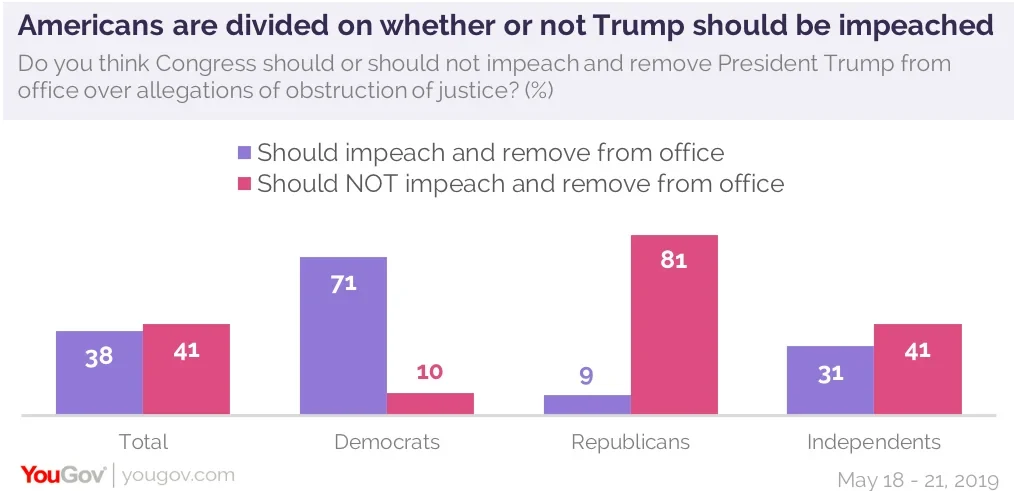
Some of those results come down to clear ideological difference between people who call themselves Republicans and those who call themselves Democrats. 58% of Democrats identify as liberals, while 75% of Republicans call themselves conservatives.
Partisanship flourishes in social isolation, and it’s not just red states and blue states driving the separation, but red and blue groups of people. Nearly two-thirds of partisans say most members of their families think like they do about politics. Two-thirds of Democrats and nearly half of Republicans say their friends think like them. Nearly half say that is also true of people where they live. The only area of less partisan agreement is on the job, in part because more than a third of respondents say they just don’t know the political views of their colleagues.
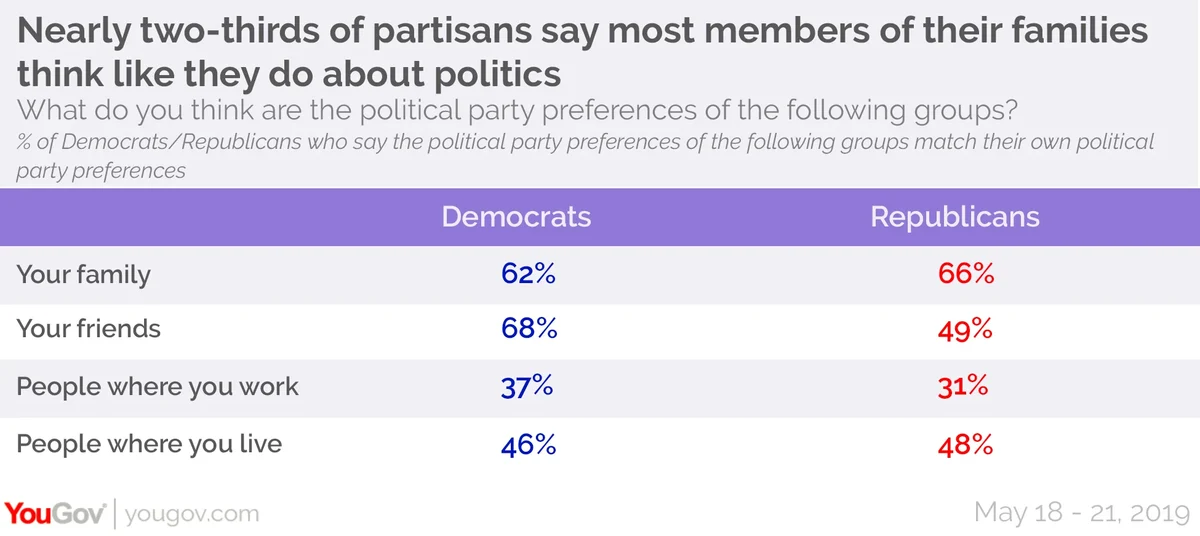
Those who think of themselves as “strong” Republicans or Democrats are even more likely to spend time with those who think the same way.
This social separation may lead partisans to distrust those who are not like them politically. Eight in 10 who identify with a party do not believe those across the aisle share the same value. Two-thirds of Republicans regard Democratic policies as bad or dangerous (with 40% calling them “dangerous”). Nearly as many Democrats say the same about GOP policies: 63% say they are bad or dangerous, with 36% using the term “dangerous.”
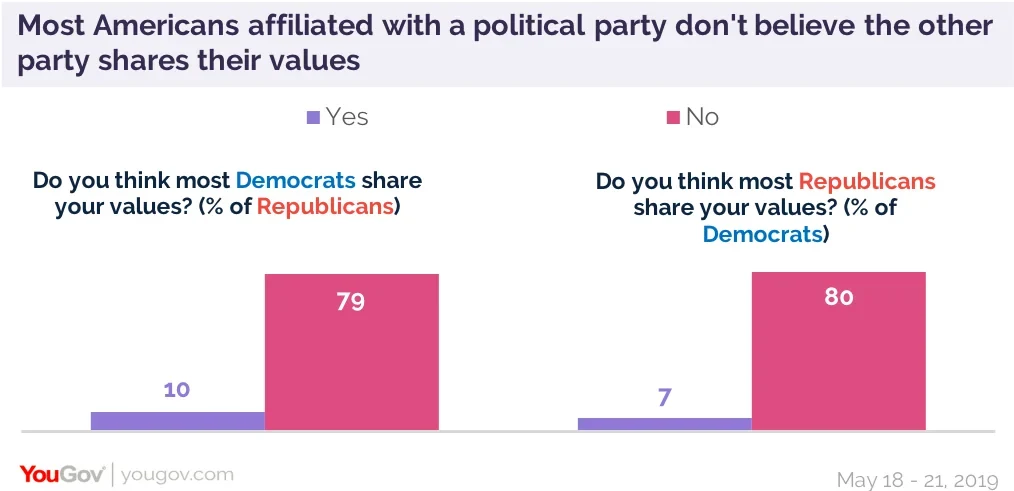
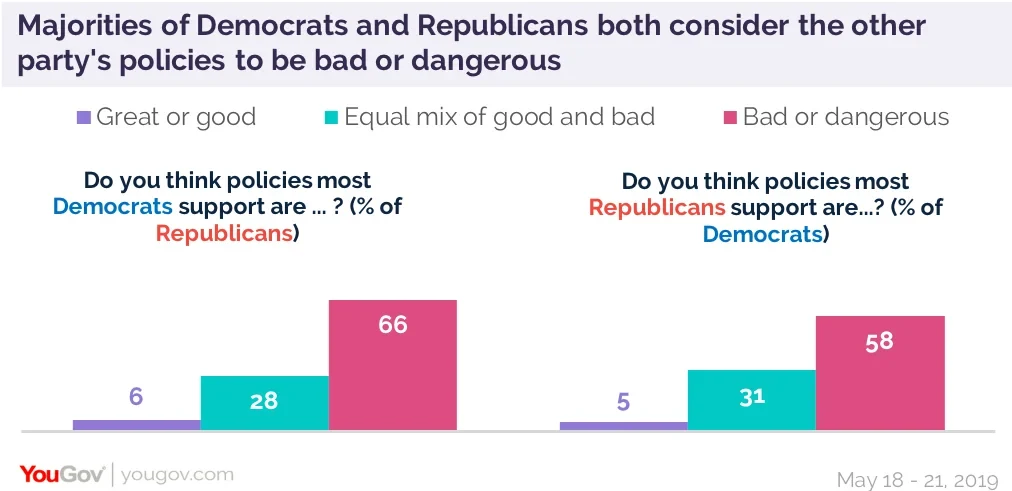
Independents are more likely to say each set of partisans do not share their values as to say they do, and majorities of independents see both good and bad in the policies of both Republicans and Democrats.
As for the opposing party, partisans were asked for the one word that described the other party. They used many different words, although ideological descriptions seem to be the most popular, with many of the other words distinctly negative.
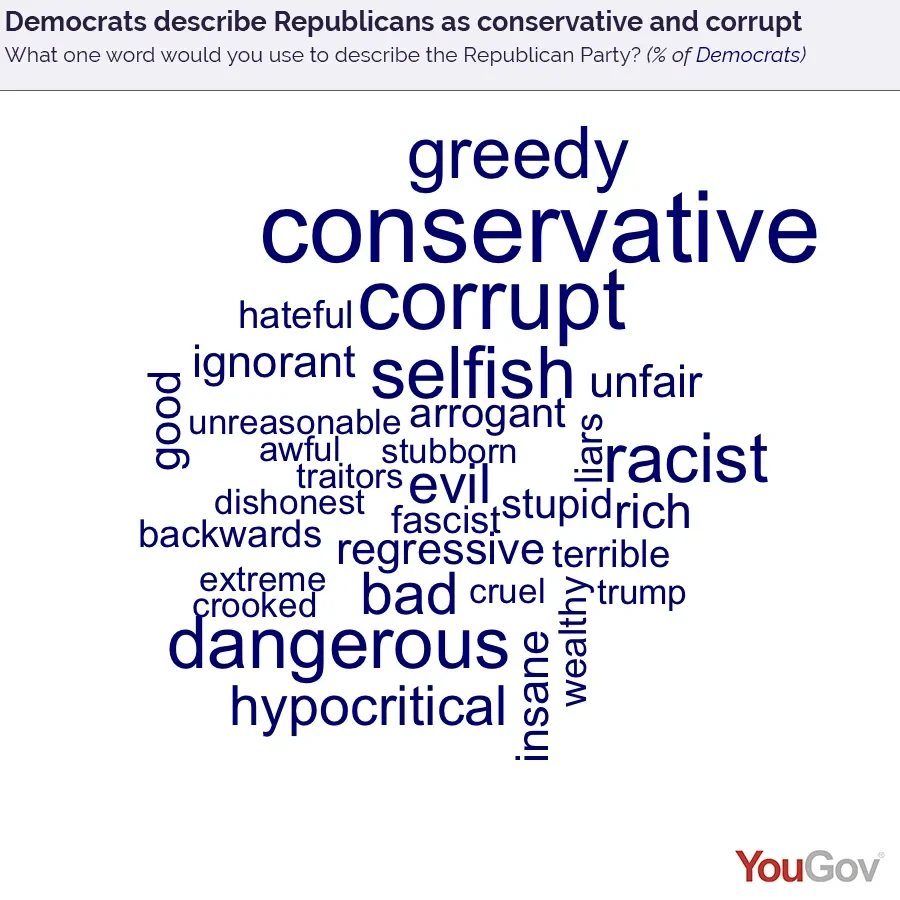
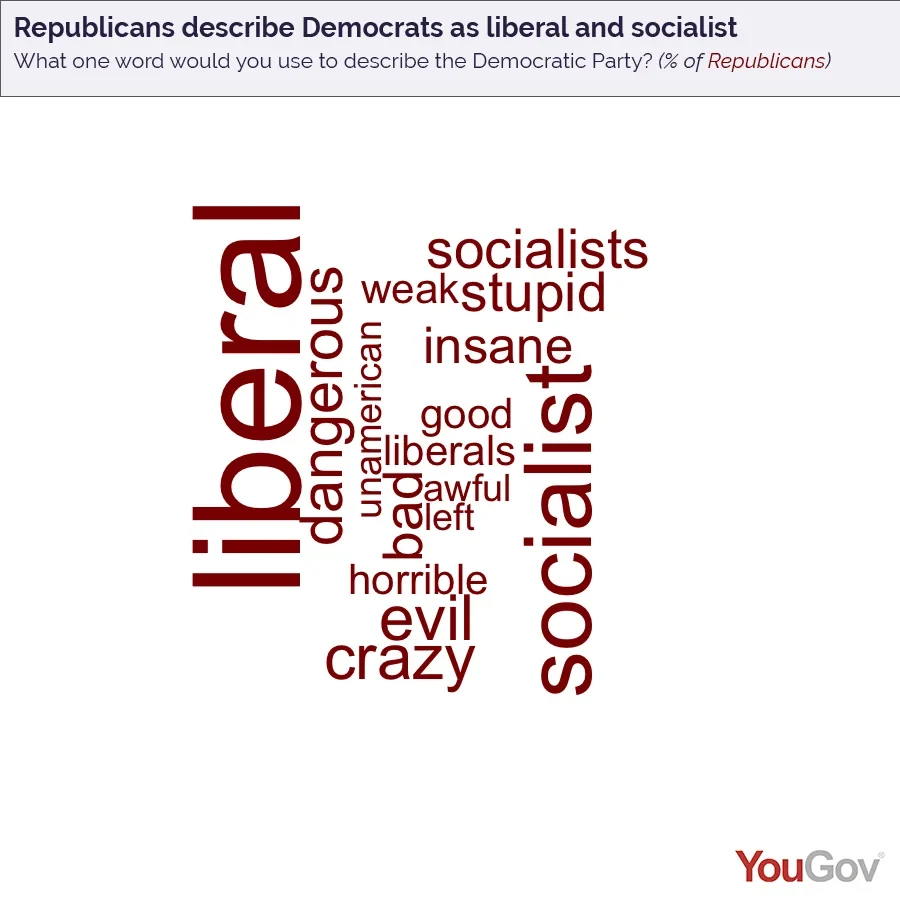
The most hopeful finding? Most partisans say they wouldn’t care if a member of their family married someone from the other party. One in four Republicans say that would make them unhappy, while even more Democrats, 35%, say they would be unhappy if a family member married a Republican.
See full toplines and tables results.
Image: Getty










